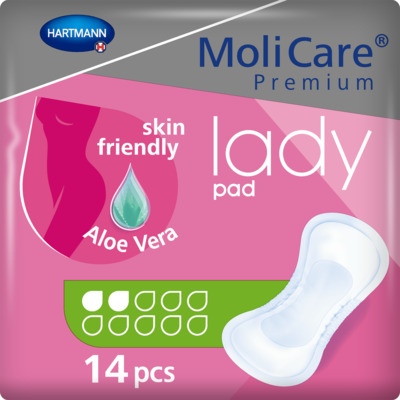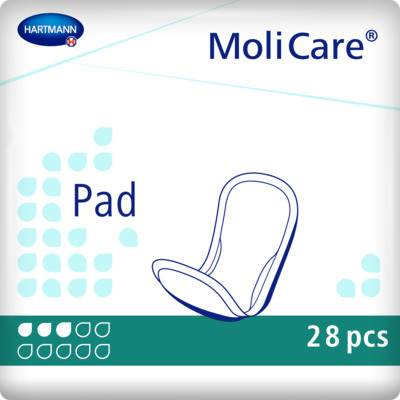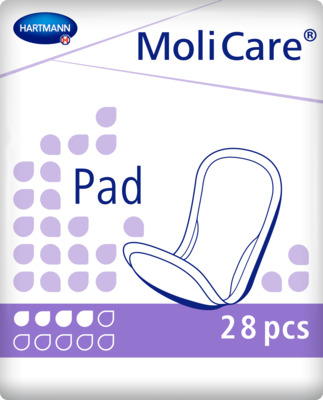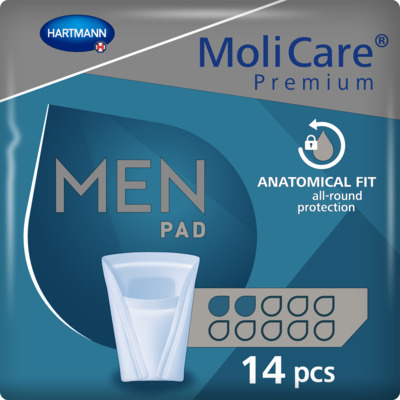Active living
How To Communicate With Elderly Relatives And Loved Ones
Do you care for an elderly family member? Is it getting harder to talk to your loved one because they can't hear or don’t understand you very well? If so, you're not alone. Most of us can struggle communicating with an elderly loved one at one time or another. In this article, you will learn how to communicate and talk better with elderly loved ones and relatives, to make sure that you make them feel safe and reassured so that you can discuss their conditions better.
If you have a elderly member of the family that also suffers from incontinence then feel free to browse our range of incontinence products.

Communicating with Loved Ones
Caring for an elderly family member, a friend, or someone in care is not always easy. While you want to support those you love, the experience can be stressful and overwhelming. You might feel emotionally exhausted and worried about their health, finances and general well-being.
Communication is vital when providing care and support for elderly relatives. Even if they can’t express their wants clearly, it is your responsibility to figure it out as best you can.
Communicating with elderly relatives & loved ones
4 Ways To Communicate With Elderly Loved Ones
Talking to your elderly friends and family members can make a big difference in their lives. Here are some of the benefits of clear and effective communication:
-
Better medical care: When you speak clearly, your loved ones are more likely to understand medical advice. Studies show that when patients fully comprehend their care, they have better outcomes. Plus, feeling heard and understood can boost their wellbeing!
-
Fewer medication mistakes: Medication errors can be dangerous, even deadly. Medication errors account for up to 22,000 deaths each year in the UK. By communicating clearly with doctors and pharmacists, and making sure your loved ones understand how to take their medications as prescribed, you can help prevent accidents.
-
Stronger relationships: When you listen carefully and speak thoughtfully, your loved ones will feel valued and understood. By improving your communication with elderly individuals, you can build trust and deepen your relationship with them.
-
More efficient visits: By being clear and concise, you can make the most of your time during visits with your elderly loved ones. Good communication can help you get everything done and still have time to connect and enjoy each other's company.
8 Tips for Communicating With The Elderly
HARTMANN Direct was founded on the principles of maintaining the dignity of our customers and respecting their healthcare needs. These tips can help you improve your communication style and more effectively communicate with people you are caring for.
- Use their preferred name/title: Respect each person’s identity, and consistently address them by their preferred name or title when meeting someone for the first time. Start with a formal greeting and take your cues from the individual for the level of formality moving forward.
Avoid speaking to them like children: Never infantilize older adults or speak to them as if they were children, in both speaking style and content.
Do not stigmatise: Treat all conditions with respect. This includes their cognitive or functional problems, incontinence and dementia, for example.
Be patient with slower mobility or responses: Respect the person’s need for a slower pace. An elderly person may have slower responses, and they will appreciate your efforts to go at their pace.
Repeat complex information and write it down: To ensure that complex information is communicated effectively, repeat it in a number of different ways, and write it down on a piece of paper.
Identify communication barriers and adjust: Assess any possible communication barriers (including hearing loss, vision problems, and cognitive issues) and adapt your communication methods.
Speak clearly within their field of vision and eye contact: Always stay within the person’s field of vision, speak clearly, and maintain eye contact. If the person requires hearing aids, ensure that they are in use.
Reduce noise for better understanding: As people get older, they often have trouble understanding speech in a noisy environment. Rather than raising your voice over a loud television programme or radio, turn the volume off.
How To Discuss Incontinence With A Loved One

Discussing incontinence with a loved one is not easy, so it is important to approach them with respect. Make sure they don’t feel ashamed, or embarrassed to ask for help. Furthermore, you should open the conversation yourself if you feel they’re not fully managing the condition on their own. For further advice, follow these tips below.
They may need to explore different types of products before they find a product that works.
Consider that they may need 2 or 3 different styles of product for day and night. Keep in mind that you can order samples from Hartmann Direct, so you are sure which product suits them best.
Talk to them about a daily cleansing routine, and changing incontinence pads frequently. Check out our products for intimate cleansing and special gloves for carers.
- Make use of the wetness indicators on each product, changing them when four fingers’ width is unblurred at either end of the indicator.
Most people use 4 or 5 pads over a 24- hour period.[4] It’s important that urine or faeces is not sat against the skin. If a product is becoming saturated within a couple of hours, they might need something more absorbent.
Choose skin care products that are specifically designed for fragile, incontinent skin that are suitable for intimate cleansing. We offer more advice to help here on the importance of skin care and incontinence.
Use the HARTMANN Direct product selector to help guide you in choosing a product for elderly relatives, or request a copy of the HARTMANN Direct brochure so you can talk through the different style of product with your relative to find a solution.
Incontinence Product Finder
Selecting the right products is key in ensuring security and discretion. If you’re not quite sure what you need, try our product finder. It’ll ask you a few questions about your needs and then provide a list of recommended products that may help you.
Find Product Incontinence Product FinderTips For Communicating With Elderly Patients
For those that work in care, we offer similar methods for communicating with elderly patients as you should with a loved one. Here is what you can do when you are communicating with an older patient, especially when they have incontinence.
-
Approach with empathy: Show understanding and patience when discussing incontinence issues, as it can be a sensitive topic for many elderly patients to talk about. No matter whether you are a new or recognised face for them, it is important to respect their boundaries.
-
Create a comfortable environment: Ensure privacy and a relaxed setting for conversations about incontinence to help the patient feel at ease.
-
Use clear and respectful language: Choose your words carefully, using simple and nonjudgmental terms to discuss incontinence symptoms and care needs.
-
Listen closely: Encourage the patient to express their concerns and preferences regarding incontinence management, and address any questions or fears they may have.
-
Involve them in decision-making: Collaborate with the patient to develop a plan for managing incontinence that respects their preferences and abilities, promoting a sense of wellbeing and control.
-
Provide resources and support: Offer information on incontinence products, personal healthcare professionals, or support groups that can assist both the patient and their loved ones in managing this condition.
Learn To Communicate With Elderly Loved Ones and Patients
No matter their condition, knowing how to communicate with elderly loved ones and patients properly can aid their experience with managing certain conditions, such as incontinence and dementia. Even asking about their wellbeing and how they are feeling is a small step in seeing how you can help them. By simplifying your speech and using recognisable, easy gestures that they will understand, whilst considering their previous experiences, you can help them to live a better lifestyle. By offering them a helping hand will allow them to open up more to you and build a bigger level of trust between you both.
FAQs
How do I talk to my elderly parents about incontinence?
Approach the topic with empathy, choose a private setting, and use gentle, non-judgmental language to discuss their needs and preferences.
How can I help an elderly person with incontinence?
Provide support by assisting with hygiene, ensuring access to necessary supplies, and encouraging regular bathroom breaks.
What are some of the key considerations when caring for someone with incontinence?
Respect their dignity, involve them in care decisions, maintain good hygiene practices, and be prepared with appropriate supplies and a supportive environment.
How to assist an older person with personal care and incontinence management?
Help with toileting, provide access to incontinence products, maintain a consistent routine, and consult healthcare professionals for guidance on managing their specific needs.
Sources
Matthews-King, A. (2018). NHS medication errors contribute to as many as 22,000 deaths a year, major report shows. The Independent. [online] 23 Feb. Available at: https://www.independent.co.uk/news/health/nhs-medication-errors-deaths-prescription-drugs-jeremy-hunt-york-university-health-a8224226.html. [accessed 30/11/23]

MoliCare® Premium Lady Pad 2 Drops
Small shaped absorbent pads for women with light bladder weakness
MoliCare Pad 3 Drops
Small body shaped disposable incontinence pads for light to moderate bladder weakness for men and women
MoliCare Pad 4 Drops
Small body shaped disposable incontinence pads for light to moderate bladder weakness for men and women
